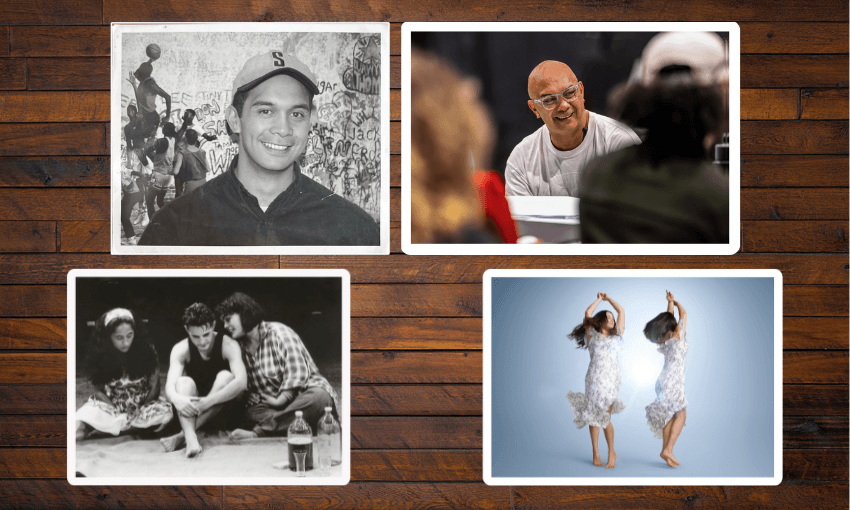Dodgy drugs, hate sex and a whole lot of whakamā makes for some very relatable viewing for Aotearoa’s geriatric Gen Zers.
A night at a flat party for 20-somethings, introduced in vignettes: opening a baggie at 8.45pm, hooking up in the bathroom at 10pm, starting a fire at 1am, masturbating to your ex at 3am. In the life of a Gen Zer on the geriatric end of the scale (as in, 20-24), a night like this can be pretty standard procedure. That’s what makes Not Even that one thing all television shows aimed at a youth audience want to be: relatable.
Focused on a group of young Māori and Pasifika (Ma, Pua, Heps, Taaps, Liz and Tawhiti) getting by in Pōneke, the series’ recently released second season (available to stream on Neon) picks up the drama where it left off – in the flat where, if walls could talk, they’d have a lot of shit to say. To recap: childhood friends Ma and Heps (who is now in therapy) are on awkward terms, Liz has stepped into her taha Māori and Pua’s lost her job and her cat, Pussy (but she’s still as funny as ever).
Ma and Heps reunite at the flat party in episode one, Manaakitanga. After the crowd of drunken and drugged-up youths thin out, they run into each other in the bathroom, and have one of those “hey, you all good?” exchanges where no one is really telling the truth about how they actually feel.
When he leaves, she masturbates to a text Heps mistakenly sends her: “Just ran into my ex-flatmate, fuck she’s annoying, still here even tho everyone else gapped it. Grabbing uber now.” It’s the “annoying” bit that really gets her hot. Is it wrong to say, haven’t we all been there?
Meanwhile, Taaps is at a turning point – his former missus is hapū, but it doesn’t mean she’s rethinking the break up. She can rely on her whānau, but she still wants Taaps to stay in baby’s life. It’s not the only difficult relationship he’s navigating – he feels overlooked by Heps, and starts to (quite literally) dodge any interaction with him.
The second season also deals with some of the difficult mother-daughter relationships within the show. Ma has to tell her mother she’s failed her law school exams and will work at a cafe full time, to which she simply replies “you owe me $6000.” Her cousin Liz, still healing with her father’s death, deals with her mum – “dumb bitch Sharon” – reaching out.
Here goes the young person complaining about the perils of youth, but being in your 20s can be incredibly isolating when you feel you have no idea where your life is headed or who you’re supposed to be. I guess that’s difficult at any age, but the mistakes caused and issued mulled over in your brain with a not-yet-developed prefrontal cortex lobe feel especially overwhelming.
No one in this show is a reflection of a perfectly average New Zealander who has it all together – rather, they represent the many, many other people living in Aotearoa whose lives only seem strange because they’re unfamiliar to us. Taaps’ parenting dynamic, Pua’s brashness, Ma’s shameless fuck-ups, Heps’ difficulty in tapping into his emotions and past and Liz’s strained relationship to her whānau and identity – these are the realities I see reflected around me in my friend circles. None of us are making it into the news for buying a house at 20 years old.
A few months ago, I was flamed for saying we needed more Māori media that makes us feel something positive, rather than the same torture tales. I have the courage of my convictions, so I still stand ten toes down on that statement, but I’ll admit to biting my tongue: the team behind Not Even are creating a “for us, by us” show for Māori and Pasifika that actually speaks to our lives in a way that doesn’t feel overwhelmingly sad.
Our ties to our whānau can be messy and difficult, looking internally often makes us shut off, and sometimes we treat our friends like shit, but we’ll always be down for a piss up in the garage (even if the bro brings his Pākehā girlfriend, bless her). Being Māori and/or Pasifika in Aotearoa is a beautiful experience, if we take a bit of humility and see the humour in the things other people use against us.



